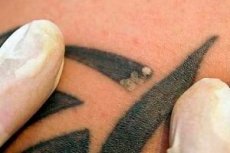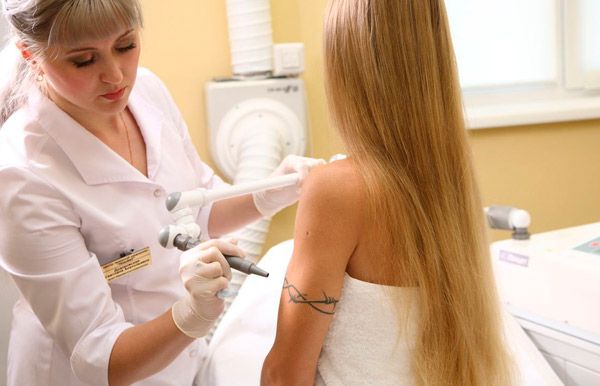New publications
Tattoos are dangerous to your health
Last reviewed: 02.07.2025

All iLive content is medically reviewed or fact checked to ensure as much factual accuracy as possible.
We have strict sourcing guidelines and only link to reputable media sites, academic research institutions and, whenever possible, medically peer reviewed studies. Note that the numbers in parentheses ([1], [2], etc.) are clickable links to these studies.
If you feel that any of our content is inaccurate, out-of-date, or otherwise questionable, please select it and press Ctrl + Enter.

Experts have warned that tattoos, especially in large quantities, can provoke the development of cancer. Such conclusions were made by specialists from the European Chemicals Agency, who in the course of their work established that the inks used by tattoo artists contain a huge amount of toxic substances and are dangerous to human health. Low-quality inks can cause various serious diseases – from allergies to cancer.
Studies have shown that red, blue, green, and black inks are the most toxic. At the same time, most tattoo parlor employees claim that they use only modern and safe inks that cannot cause any harm to health. In turn, experts from the chemical agency will soon provide a list of substances that are part of tattoo inks and may have a possible health hazard, so that each person can make their own choice.
Tattoos are very popular among both teenagers and older people, and there are now a huge number of tattoo parlors where professional artists will apply any design to the body in a high-quality and painless manner. But scientists are concerned not at all about the mass desire of people to decorate their own bodies, but about the fact that there are no specific standards for the quality of ink and materials imported from other countries are not subject to mandatory testing. Scientists emphasized that the ink is injected subcutaneously and can interact with blood, so it is extremely important to be sure of the quality of the ink, since we are talking about the most important thing - human health.
It is worth noting that in the UK tattoo artists supported the scientists' aspirations; according to Rick Stevens, one of the most famous representatives of the tattoo business in this country, quite often specialists receive low-quality ink (mostly supplied from China and characterized by low cost).
British health officials also supported the initiative of the chemical agency experts and noted that the UK does not have as strict a policy regarding tattoos as the rest of Europe.
According to scientists, poor quality ink is not the only problem in the tattoo business - in a number of parlors, artists do not use disposable gloves or sterile needles during work, as a result of which the risk of infection among visitors to such tattoo parlors increases.

In the spring, specialists at the University of Alabama discovered that tattoos can affect the functioning of the immune system - each subsequent application of the design causes a response from the body and trains the immune system.
Experiments have shown that the first tattoo weakens the immune system and increases the level of the stress hormone ( cortisol ) or as some scientists call it – the death hormone. But the second and subsequent tattoos, on the contrary, strengthen the immune system.
Despite all the warnings from scientists about the dangers of tattooing, governments are not yet willing to ban this procedure at the legislative level, primarily because of bureaucratic red tape, in addition, the tattoo business is currently the most widespread and quite profitable.
